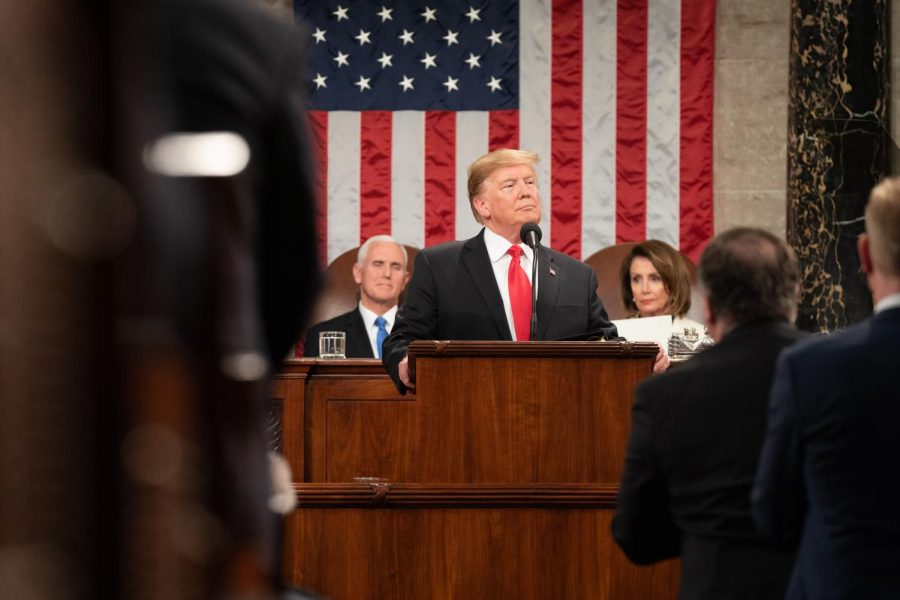States rights are your rights
Photo courtesy of Public Domain
President Donald J. Trump delivers his State of the Union address at the U.S. Capitol, Tuesday, Feb. 5, 2019, in Washington, D.C.
Feb 17, 2019
In the last number of weeks, President Trump began to hash out his plans to deploy 3,700 more troops to the southern border of the United States.
Two weeks ago, New Mexico’s governor stated that “New Mexico will not take part in the president’s charade of border fear-mongering by misusing our diligent National Guard troops.”
Then, just this week, California’s governor added on, “The border ‘emergency’ is a manufactured crisis, and California will not be part of this political theater.”
If we take the politics of these announcements out of consideration, how do states have the ability to defy the president?
In 1977, then President Richard Nixon said in an interview, “Well, when the president does it that means that it is not illegal.”
Get The Daily Illini in your inbox!
Unfortunately, or perhaps fortunately, this is not true.
While the president is the leader of the nation, they cannot simply act however they want, whenever they want.
While a federal law applies to all 50 states, states can have their own independent laws. And, if a statement from the executive branch is not actually law, then there can be allowances for states to disobey the orders.
This is not all that different from the University system having a president, but each specific University campus having a chancellor and an independent senior administration.
In the Constitution there is a supremacy clause which gives our federal government the ability to act above the states. However, the 10th Amendment says that decisions not set out explicitly for the federal government are left for the states to decide.
The president is more than a figurehead in this country, they set rules, orders and laws to be followed throughout the nation. Yet this is also a nation of states and of people, so our states and we ourselves have the ability to create a norm outside the parameters of the Executive Branch of this nation.
These abilities should not be overlooked. Not all said by the White House is carved in stone. If you wish to see a reality more in line with your own views, whatever they may be, get involved in the political process at every level from local, to state, to federal.
As easy as it can be, and has become, to point to flaws at the top of our country, we ought to remember that we as citizens of the country, and as citizens of each of our respective states, get to voice our thoughts and turn them into actions ourselves.
Hayley is a senior in ACES.






